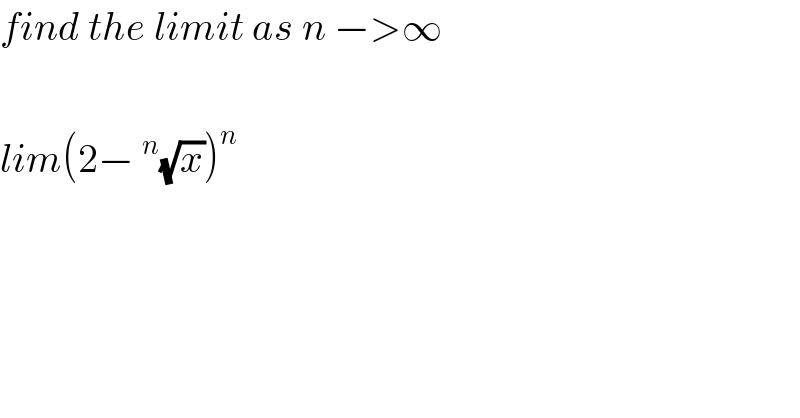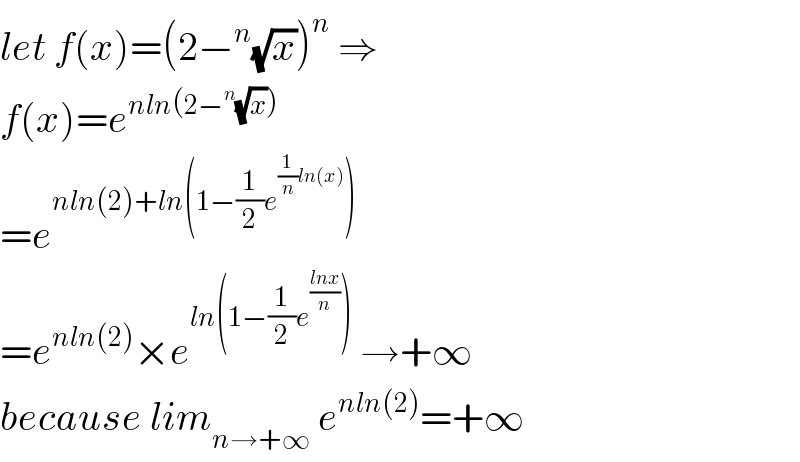
Question and Answers Forum
Question Number 81970 by arkanmath7@gmail.com last updated on 17/Feb/20

Commented bymsup trace by abdo last updated on 17/Feb/20

| ||
Question and Answers Forum | ||
Question Number 81970 by arkanmath7@gmail.com last updated on 17/Feb/20 | ||
 | ||
Commented bymsup trace by abdo last updated on 17/Feb/20 | ||
 | ||